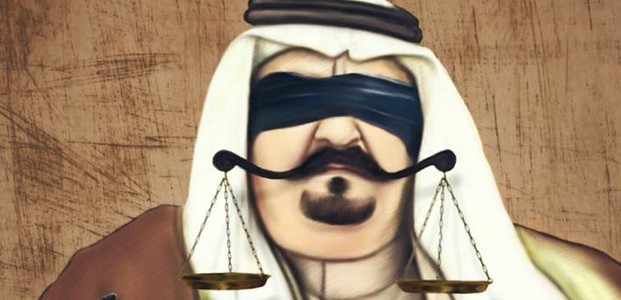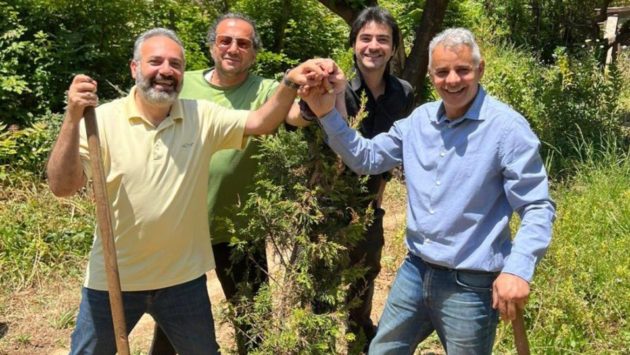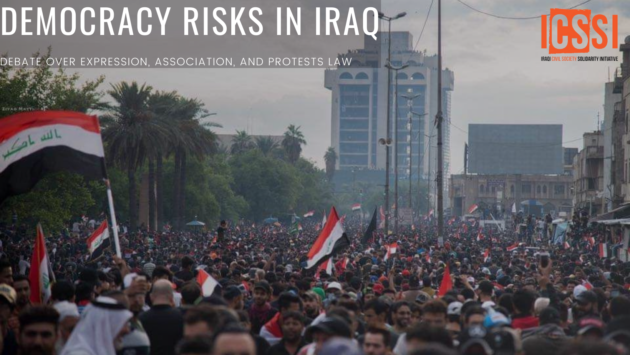Baghdad Politicians Seek Protection From Corruption Charges With Their Tribes
At the beginning of the month, during a particularly dramatic session of the Iraqi Parliament, various senior politicians traded accusations of corruption and wrong doing. The session was held in order to question the country’s Defence Minister Khaled al-Obeidi about alleged administrative and financial corruption. Instead of answering questions though, al-Obeidi made his own accusations, saying that the Speaker of the Parliament, Salim al-Jibouri and two other MPs, Mohammed al-Karbouli and Taleb al-Mimari, were guilty of corrupt practices.
Al-Obeidi said he was being accused because he had refused to partake in corrupt practices and that al-Jibouri and the others had tried to blackmail him. Most of his accusations were in fact directed at those who had previously criticized him and that included both Sunni and Shiite MPs.
Most of the feuding politicians are Sunni Muslims so it wasn’t just the usual Shiite versus Sunni tit-for-tat. And some analysts say this indicates again how there are rifts developing within all of the country’s traditional blocs, wherein politicians are no longer just loyal to one another based on sectarian allegiances.
Just hours later the cases were filed in earnest and the Prime Minister, Haider al-Abadi, tasked a special committee to look into the accusations as well as imposing a travel ban on the MPs involved.
ust a few days later one of the cases – against al-Jibouri – had already been closed, for lack of evidence. But the story didn’t end there.
The politicians in question also went to their respective tribes to ask for their support in defending themselves against the public accusations.
Two days after the dramatic session in Parliament, senior members of al-Obeidi’s tribe, the al-Abid, held a press conference during which they declared support for the Minister of Defence and made threats against anybody who was thinking about attacking the politician.
The leaders of the al-Jibour tribe, to which the Speaker of the Parliament belongs, also issued a statement. In this, they threatened al-Obeidi and accused him of lying. They also said they supported their man in Parliament unconditionally.
The tribe to which the MP, Mohammed al-Karbouli, belongs, also held a press conference saying that they also reject the accusations made against their politician and they too threatened any person who would do harm to a member of their tribe.
This is something relatively new on Iraq’s political scene and ordinary Iraqis are starting to criticize the fact that tribes are interfering in politics so overtly. Tribal justice has long been a problem in the country with locals bypassing the court system and having tribal elders mete out justice, often in the form of financial reparations. The tribes take a percentage of the deals they negotiate. But if this carries on, and more politicians resort to tribal connections for protection and authority, there are worries that, firstly, it will no longer be possible to investigate corruption and, secondly, that the political conflicts may evolve into armed ones.
Tribes are already fighting one another in the south and in areas that have been freed of the extremist group known as the Islamic State, tribes are jockeying for power in the post-extremist landscape, sometimes violently.
“Tribes should refrain from interfering in conflicts between officials and politicians,” Abboud al-Issawi, the head of the parliamentary Committee on Tribal Affairs, told NIQASH. “It is the Iraqi judiciary and the courts who should be resolving these kinds of things. Tribal leaders should support the state’s efforts to impose law. In fact, if tribes get involved, the conflicts can sometimes go on for years,” he argues.
Al-Issawi says that the Iraqi Parliament is currently considering legislation that would organize tribal affairs and manage their role in public life.
In fact, Iraq’s tribes have always been involved in the country’s political life. Tribal affiliations play a large part in elections, with many voters motivated by politicians who belong to their clan. Basically tribes can decide who is going to win or lose an election. Before each election, candidates go to their tribes and ask for support; they have massive capacity to mobilize locals.
In return, any politician who wins will dispense favours to other members of his tribe, things like appointing clan members to senior positions or even just giving them a government job, or awarding them a government contract.
“The fact that tribal influence continues to increase is a sign of how weak the rule of law is in Iraq,” says Idris al-Qaisi, a sociologist. “Political chaos and fighting about power and money have also contributed to the growing influence of tribes. Politicians curry favour with their tribes and their extended family so they will support them during elections. But when they win the elections, they neglect the tribe again. They only continue to bribe the tribe’s elders with money and privileges.”
And in fact, most of tribal leaders are wealthy individuals who have left their villages and rural areas and who have moved to Baghdad or other cities, al-Qaisi adds.
“The members of our tribes come to us because the government and the Iraqi courts are incapable of helping them,” says Qassim al-Ayed, a senior member of a tribe who lives in Baghdad now. “Criminals are never brought to justice and that’s why the tribes are brought in.”
Al-Ayed insists that the tribes play a positive role. “If we did not protect our sons, then social chaos would just get worse,” he told NIQASH.
There are plenty of stories of how tribal law impacts Iraqi society. In every tribe there are individuals assigned to work on issues of tribal justice. If financial reparations are necessary, these individuals start by going to the perpetrator’s tribe and asking for money. This can amount to hundreds of millions of Iraqi dinars.
If the other tribe doesn’t pay, the individuals may start a campaign against them, targeting business interests or homes owned by members of the perpetrator’s tribe. Sometimes they write graffiti on the walls of the businesses: The owners of this property are wanted under tribal law. This causes a lot of fear; business owners may leave as a result.
One of the most recent examples involves a Korean employee of Daewoo Engineering and Construction, a Korean company building port facilities in Basra in southern Iraq. The Korean slapped another employee, an Iraqi, who then asked his tribe to arrange reparations.
The company actually came to an agreement with the tribe, paying US$7,000 and giving the worker who was assaulted two month’s paid leave.
The incident is troubling, according to Samir al-Qadi, a member of the local Chamber of Commerce there. “Foreign companies won’t want to invest in Iraq if they have to deal with tribal issues as well as all of Iraq’s other problems,” he told NIQASH.





